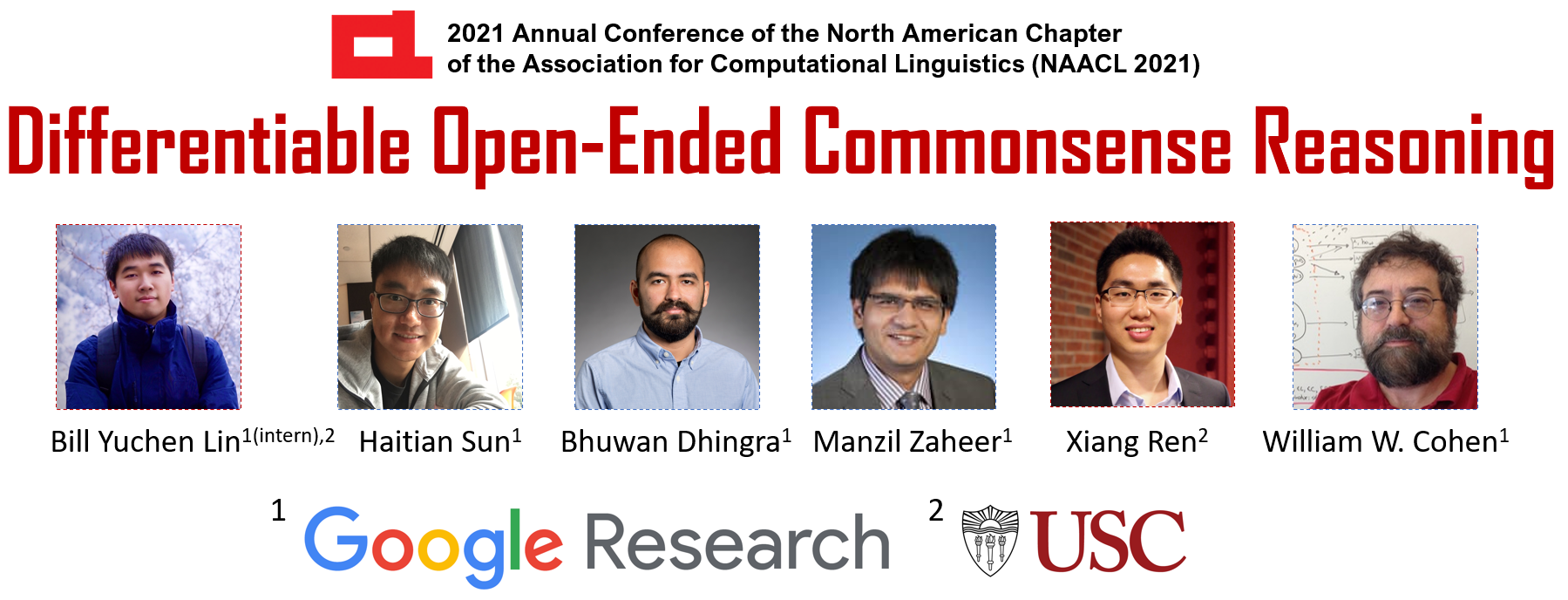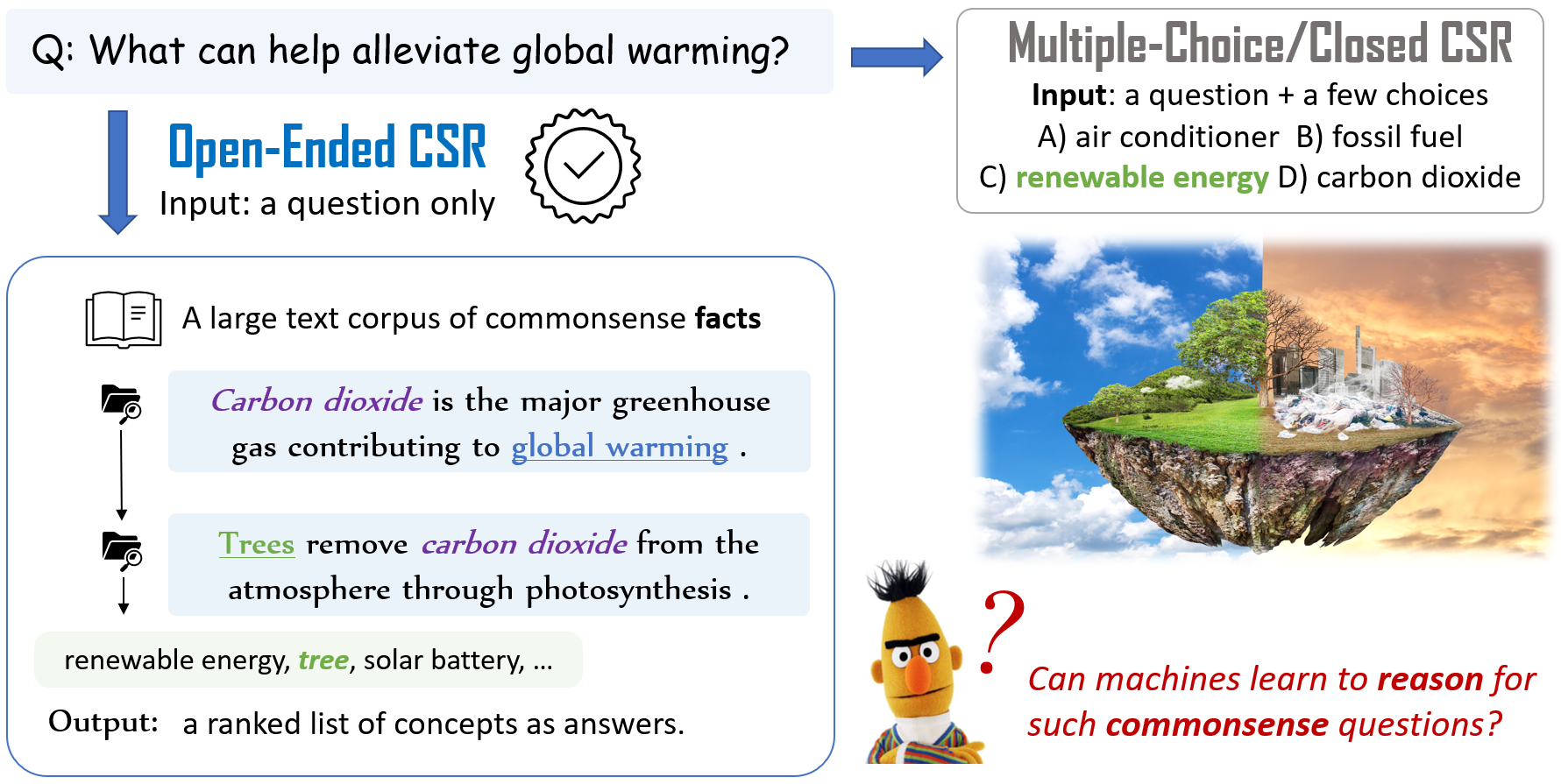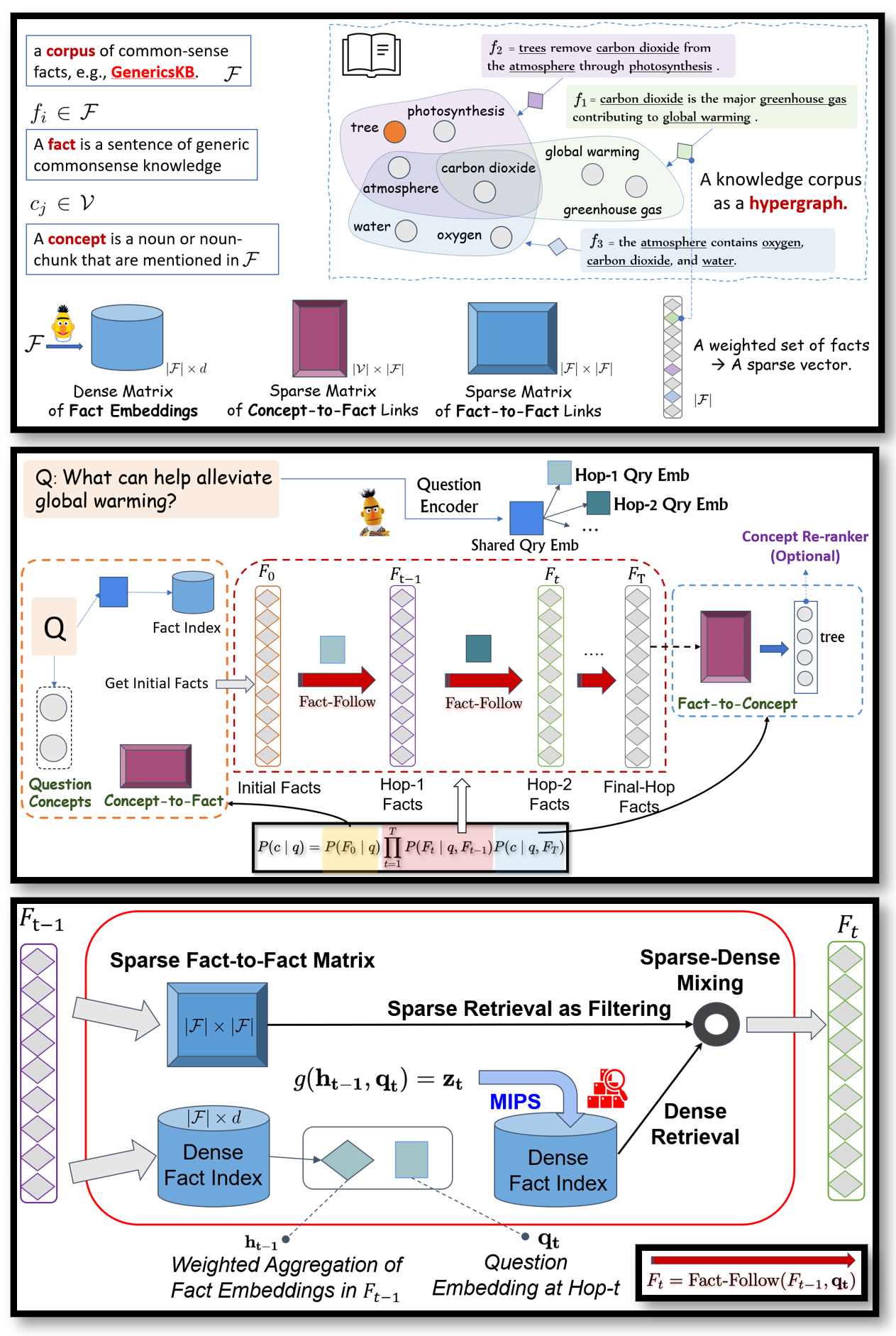OpenCSR:
Open-Ended Common-Sense Reasoning

This is the project site for the paper, Differentiable Open-Ended Commonsense Reasoning, by Bill Yuchen Lin, Haitian Sun, Bhuwan Dhingra, Manzil Zaheer, Xiang Ren, and William W. Cohen, in Proc. of NAACL 2021. This is a joint work by Google Research and USC.
@inproceedings{lin-etal-2021-differentiable,
title = "Differentiable Open-Ended Commonsense Reasoning",
author = "Lin, Bill Yuchen and Sun, Haitian and Dhingra, Bhuwan and Zaheer, Manzil and Ren, Xiang and Cohen, William",
booktitle = "Proceedings of the 2021 Conference of the North American Chapter of the Association for Computational Linguistics: Human Language Technologies",
month = jun,
year = "2021",
address = "Online",
publisher = "Association for Computational Linguistics",
url = "https://www.aclweb.org/anthology/2021.naacl-main.366",
pages = "4611--4625"
}

Abstract
Current commonsense reasoning research focuses on developing models that use commonsense knowledge to answer multiple-choice questions. However, systems designed to answer multiple-choice questions may not be useful in applications that do not provide a small list of candidate answers to choose from. As a step towards making commonsense reasoning research more realistic and useful, we propose to study open-ended commonsense reasoning (OpenCSR) — the task of answering a commonsense question without any pre-defined choices — using as a resource only a knowledge corpus of commonsense facts written in natural language.
OpenCSR is challenging due to a large decision space, and because many questions require implicit multi-hop reasoning. As an approach to OpenCSR, we propose DrFact, an efficient Differentiable model for multi-hop Reasoning over knowledge Facts. To evaluate OpenCSR methods, we adapt three popular multiple-choice datasets, and collect multiple new answers to each test question via crowd-sourcing. Experiments show that DrFact outperforms strong baseline methods by a large margin.
Overview of the proposed DrFact method
We propose DrFact, a multi-hop reasoning method for OpenCSR. Instead of using structured KGs limited to facts with binary relations, we focus on reasoning with a knowledge corpus consisting of generic commonsense facts. We formulate multi-hop reasoning as transitions over a hyper-graph, where nodes are concepts (i.e., noun chunks) and hyperedges as facts (i.e., fact sentences). DrFact iteratively merges MIPS results from dense fact index and sparse fact-to-fact matrix, in a differentiable way for end-to-end learning. The below figures show 1) pre-computing steps for representing a knowledge corpus (e.g., GenericsKB), 2) the formulation of multi-hop reasoning via iterative fact-following, and 3) the concrete implementation of differentiable fact-follow operations.
